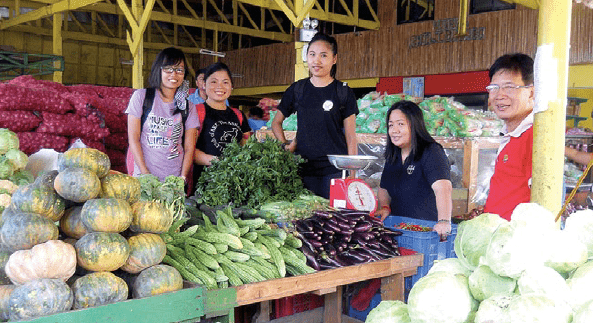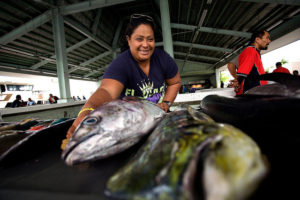
APEC pushes for gov’t reforms that support women exporters
 The Asia-Pacific Economic Cooperation (APEC) is leading the drive to help more women entrepreneurs in the region, including those in the Philippines, gain entry into the global marketplace.
The Asia-Pacific Economic Cooperation (APEC) is leading the drive to help more women entrepreneurs in the region, including those in the Philippines, gain entry into the global marketplace.
Small business promotion authorities from APEC member economies are taking the next steps to ease bottlenecks hindering women-led exporters and their growth and job-creating potential in the Asia-Pacific, the APEC Small and Medium Enterprises Working Group said in a statement.
The group detailed plans to expand efforts to tackle gender bias in trade during recent meetings in Sydney, Australia. These include greater cross-border training and technical exchange to enable reforms that aim to level the playing field for women-owned and managed firms in APEC economies, and improve their access to international markets.
“The move could increase trade-driven growth and job creation across a range of businesses—from a successful hand-loomed fabric producer run and operated by women in Philippine villages, to an emerging technology company started by a Peruvian woman that helps disabled people to communicate via instant messaging, to women-managed suppliers of materials and parts in Viet Nam that support manufacturers in Australia, Japan and the United States,” said the statement released March 22.
“APEC economies are deepening cooperation to break down barriers to the development and competitiveness of women-led businesses,” explained Nguyen Hoa Cuong, chair of the working group.
“Our work to address inequalities facing women entrepreneurs and managers stands to boost trade and growth, particularly among small businesses that account for the majority of employment across the region,” noted Nguyen.
The focus is on lowering institutional and policy barriers to participation in trade by women-led businesses. Examples include outdated labor laws that fail to sufficiently protect women, a lack of childcare services, limited availability of credit, and inadequate or out-of-reach higher education and skills development opportunities.
To address these challenges, APEC is increasing public sector capacity to introduce gender-responsive trade promotion policies and programs, in coordination with the business community and civil society. Training and information-sharing sessions for trade promotion officials, to be held next month in Ha Noi, Vietnam, will take this multi-year, region-wide initiative forward.
“Women-led small and medium enterprises can better tap into international business and global supply chains when they are supported by government policy and practices that tackle gender specific constraints faced by female entrepreneurs,” explained Cynthia Balogh, director of Women Going Global, the chief trainer leading the team overseeing the project. “The incentives for job creation and growth in the region are potentially huge.”
This work is complemented by measures taking shape in APEC to widen access and use of e-commerce by women-led micro, small, and medium enterprises, helping them reach customers and business partners abroad.
Opening up financing avenues, branding, intellectual property protection, and management support are further areas of emphasis.
“Women in the Asia-Pacific are major drivers of small businesses with great exporting potential but may be constrained by unsupportive economic and social policies,” said Hoang Thi Thu Huyen, chair of the APEC Policy Partnership on Women and the Economy.
“Reform is key to realizing more gender balanced trade that benefits everyone. It is also critical to transforming attitudes that remain the bigger obstacle to women’s economic empowerment,” she added. – Romelda C. Ascutia
Photo: Asian Development Bank
Featured Photo from Agriculture.com
